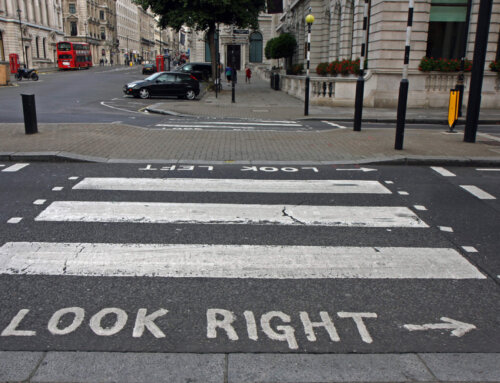What does personal injury law come under?
Personal injury law cases are dealt with under civil law. If you suffer injury or illness in an accident caused by someone else’s negligence (carelessness), you will probably want compensation from them. You will, therefore, bring a personal injury claim against the person, employer or local authority you say was responsible for the accident that caused your injuries.
The case may go to Court to decide who was at fault and how much compensation you will receive. If that happens, the Court will be a civil court (as opposed to a criminal court that deals with criminal wrongdoing cases).
The Law of Personal Injury claims start from the basic theory that if someone does you wrong, they should be made to put it right. Personal injury claims aim to make the wrong right by making the person who caused the accident pay you compensation for the harm caused.
What type of compensation does a personal injury claim include?
A claim for personal injury will include a claim for the injury you suffer. If your personal injury claim is successful, you will be awarded compensation or, to use the correct legal term, ‘damages’. You will be awarded damages for pain, suffering and loss of amenity. In other words, you will receive damages for the pain of the injury itself, the suffering it causes and its effect on your day-to-day life.
This type of compensation is called ‘general damages’. The best way to describe ‘general damages’ is to say it is compensation that cannot be calculated simply by using a mathematical formula.
Contrast this with, say, a claim for loss of earnings. If you have to take time off work due to injury sustained in an accident, you may have a loss of earnings claim.
You are entitled to claim for direct losses suffered as a consequence of the accident that was not your fault. So, you can claim for loss of earnings provided they are reasonably incurred.
A claim for lost earnings would be a ‘special damages claim’. This is because earnings loss can be calculated using a mathematical calculation.
You can learn more about what items of loss count as general damages and what count as special damages in our blog, ‘5 Common Questions We Get Asked About Personal Injury Claims’.
What are the most common types of personal injury claims?
At Mooneerams Solicitors, the most common types of personal injury claims we handle are:
Medical (or clinical) negligence claims seek compensation for pain, suffering, and loss of amenity for the victim of negligence caused by a medical professional.
Personal injury compensation claims are brought by individuals who’ve been exposed to asbestos and go on to suffer from a recognised asbestos disease, such as mesothelioma, asbestos lung cancer, asbestosis, or pleural thickening.
What is the average payout for a personal injury claim in the UK?
There is no such thing as an ‘average payout’ in a personal injury claim. Sure, we could estimate the amount of damages you might receive for the pain and suffering you endure due to a whiplash injury, broken arm, serious head injury, or an amputated leg, add them all together and then work out an average figure, but it will be a meaningless figure.
When you make a personal injury claim, your compensation payout will depend on your particular circumstances, such as:
- The seriousness of your injury,
- Whether your injury will affect the type of work you do now or in the future,
- How the injury affects your family life and leisure time.
Other types of general and special damage claims specific to your case may be added to the damages claim for pain, suffering, and loss of amenities.
Sometimes, you will see news stories about multi-million-pound settlements in serious injury claims or medical negligence claims.
However, in such cases, the overall compensation for personal injury, including pain, suffering, and loss of amenity, might only amount to around 20% of the overall compensation awarded. The rest of the monetary settlement will be for various losses and future care costs, including making adaptations to the home, the cost of future treatment, and so on.
Should you choose an experienced firm of specialist personal injury solicitors, like Mooneerams to handle your accident injury claim, we will assess what your claim will likely be worth after the relevant medical evidence on your injuries has all been obtained. The anticipated settlement figure may change as your claim proceeds for several reasons. For example, your medical prognosis may get worse or improve, so that could alter what your claim is worth.
Watch Our Video – Understanding The Basics of Personal Injury Law
How is personal injury compensation calculated?
The ultimate Judge of how much your personal injury claim is worth is a real Judge sitting in Court. When a Judge is asked to consider how much compensation they will award to the claimant in a particular case, they will listen to the evidence presented by both the claimant and the defendant and then base their decision on:
- Judicial Precedent: This means considering how much was awarded in already decided cases where the injuries were similar to those of the claimant in the case now before the Court.
- Judicial College Guidelines: The Judicial College Guidelines for the Assessment of General Damages in Personal Injury Cases are updated every few years and published as a book.
The 17th edition of the Guidelines was published in May 2023, and the figures quoted in the table below are from this edition.
The ‘Guide’ contains guidelines for valuing personal injury claims. Next to each type of injury set out in the book is a column that usually has a bracket of figures for what a claim is worth, as can be seen from the example below, relating to head and brain injuries.
| Type | From | To |
| Major Brain Injury | £344,150 | £493,000 |
| Moderately Severe Brain Damage | £267,340 | £344,150 |
| Moderate Brain Damage | £52,550 | £267,340 |
| Less Severe Brain Damage | £18,750 | £52,550 |
| Minor Head or Brain Injury | £2,690 | £15,980 |
It is essential to take on board that these are guidelines.
In Court, a Judge will use precedent and guidelines to decide what an injury claim is worth. They will also factor in compensation for the loss of amenities this injury caused.
Remember: The amount your claim is worth is individual to you and your own particular circumstances.
The methods used by a Judge at Court to decide the value of a claim are the same as those used by an expert personal injury solicitor to value the claim.
Most injury claims will not go to Court. It is estimated that no more than 5% end up in Court (and some legal commentators reckon the figure to be as low as 1%).
Can I make a personal injury claim myself?
There is nothing to stop you making a personal injury claim on your own behalf. If you suffer a whiplash injury in a road traffic accident after 31st May 2021, the law and procedure for making a claim have been revised to encourage you to run your own claim.
However, the official guide to making a whiplash claim runs to 64 pages, so unsurprisingly, many whiplash claimants are still turning to personal injury solicitors to pursue whiplash claims on their behalf.
All this suggests that the new online whiplash portal is not as straightforward for members of the public as the Ministry of Justice indicated it would be.
Research reveals that:
- Most people who have started claims in the new Whiplash portal get legal representation.
- There is a massive backlog of unresolved cases.
- On average, each claim takes 251 days to settle.
It does not get any easier when it comes to filing other types of personal injury claims yourself.
If all this sounds like we are trying to put you off, it is only because we regularly take over injury claims on behalf of people who have started their own, only to come unstuck along the way. Pursuing your injury compensation claim without expert legal advice and assistance can be difficult.
Before taking the step of trying to handle your own personal injury claim, you may want to ask yourself:
- Do I know the procedure involved, or could I learn it quickly?
- Do I have the time or the will to do so?
- Do I have the skills and research abilities to find out the value my own claim?
- How will I know whether an offer of compensation from the other person’s insurance company is reasonable?
- What do I do if I reject an offer and the insurance company will not offer me more?
- How do I start legal proceedings?
- Do I know how to read and understand a medical report?
- What if I settle my claim and then find out I undervalued it?
- Do I know what I can and can’t claim for?
An expert personal injury solicitor will know the answer to these questions and have all the qualities required to pursue your compensation claim to a successful conclusion.
- Do I have the funds to issue court proceedings?
The court fees to start your claim by issuing court proceedings cost anything from around £370 up to £10,000, depending on the estimated value of your claim.
It’s worth noting many No Win No Fee solicitors like Mooneerams Solicitors will pay this fee on behalf of their clients and recover it from the paying insurance company as a disbursement (expense) when the claim concludes.
These are some of the questions you must consider before taking the risk of dealing with your claim yourself. We hate to see people go uncompensated or under-compensated, and that is the risk you may run by dealing with the claim yourself.
Experienced personal injury solicitors train and practise for many years before becoming experts. Our advice is to tap into that legal expertise.
Do not forget that if you ask a No Win No Fee personal injury solicitor to act for you, the claim will almost always be risk-free – if you enter into a No Win No Fee agreement with a solicitor and lose your claim, you will have nothing to pay.
If you win the claim, you will pay a fee to your solicitor out of the compensation you receive. You might think that is better than under-settling your claim or getting nothing by trying to do it yourself.
Many people who don’t ask a law firm to handle their personal injury claim worry about paying for legal fees they can’t afford.
Due to the availability and success of the No Win No Fee method of funding injury claims, as long as you find an experienced No Win No Fee firm of Personal Injury solicitors, you don’t need to worry about the financial aspects of bringing a claim.
Should I accept a first offer of compensation?
Whether you should accept an offer to settle your claim depends on whether the offer is reasonable. If you have a solicitor on your side, this is where they earn their money and when you will rely heavily on their knowledge and experience.
If it is not a reasonable offer, then it should be rejected.
You also need to look at what stage your claim is at. For instance, if your injury persists, and the medical evidence you have so far obtained suggests it is too early to say how long it will take to recover from your injuries, it is too early to settle.
Your solicitor will probably advise you not to accept any offer until an experienced medical professional has given you a firm prognosis. (‘Prognosis’ means the likely outcome of your medical condition.)
Even if the first offer seems pretty reasonable, is it the best offer you will likely get?
People tend to think that a first offer should always be rejected and that a better one will be waiting around the corner. That is often true, but not always so. Some defendant insurance solicitors like to make their best offer as soon as possible. They may then back this up with a Part 36 Offer of the same amount.
What is a Part 36 Offer?
If you reject an offer to settle your claim from your opponent, you will not generally face any cost penalties if you turn it down, even if your claim ends up settling for less than the offer. This means you can decline the offer without worrying about paying a cost penalty for not accepting the offer.
If, however, when making the first offer, the defendant’s insurance solicitor uses the Part 36 offer procedure if you end up getting less compensation than the Part 36 Offer was for, then there are consequences.
The downside to this situation is that while you will get the costs of your case up to and including the date the Part 36 offer was first made, you will not receive anything further for the costs of the claim from the date of the Part 36 Offer up to the date you finally settle for the Part 36 offer or it goes to Court, and the Judge awards a lesser sum.
Moreover, the defendant will get their costs from you from the date the Part 36 Offer was made, up to the claim ending. That could have the practical effect of reducing considerably the amount of compensation you end up with.
The reason for this is when the Part 36 Offer was made, you were warned of the consequences of what would happen if you declined the offer and then later recovered no more or less than the Part 36 Offer made much earlier in proceedings.
If you want to ensure that your personal injury claim is dealt with in the way you would expect of an experienced ‘personal injury only’ solicitors firm, then call Mooneerams – The Personal Injury Solicitors. With over 20 years of acting only for claimants, never for defendants, we will recover the best compensation possible for your accident compensation claim.
Contact us today for free initial advice on making a personal injury claim. Call 029 2199 1927 or email enquiries@mooneerams.com. We handle most claims for our clients on a No Win No Fee basis. Most personal injury claims have a three year time limit within which you must start your claim.
Posted in Personal Injury Claims










